AgFunder and its collaborators KK&P and The New Food Economy are excited to announce that S2G Ventures has become a sponsor of Money Where Our Mouths Are (MWOMA), an investigation into the funding gaps for female entrepreneurs in the agrifood industry. MWOMA will pinpoint strategic entry points for increased investments in women founders.
There is a lack of female entrepreneurs in food tech and agtech, Amir Zaidman from Israel’s The Kitchen FoodTech Hub told AgFunderNews on the sidelines of the Seeds & Chips Food Innovation Summit in Milan this week.
“We matchmake potential CEOs to potential inventors to complete the team before launching a startup and we are relentlessly looking for female entrepreneurs but there aren’t enough,” he said. The Kitchen, which has four female-led startups in its portfolio, recently introduced Liron Nimrodi to Amiel David, the inventor of a plant-based egg replacement, and she is now the CEO and cofounder of ZeroEgg alongside David. While emphasizing that he does not look for women on the basis of any affirmative action, Zaidman did admit that women bring certain qualities to the table such as their openness to listening and consultation, and bringing less ego to their work than many men do.
Often feminine characteristics are discouraged in the industry, speakers on a panel about the role of women in the food industry told delegates. And they are frequently encouraged to lead in a masculine fashion.
But they should be authentic in their style of leadership, the panel argued.
“Women often have a different style of leadership to men, and feminine traits, which have their own value, are discouraged,” said Natalie Shmulik, CEO of food-focused incubator The Hatchery Chicago. She added that women entrepreneurs need to be educated not to feel imposter syndrome and to be ready for a predominantly male-dominated VC industry. But equally, male investors need to be better educated to understand and value the different styles of leadership and presentation that women bring to the table.
Susan Rockefeller, the award-winning documentary filmaker, conservationist, and board member at the Stone Barns Center for Food and Agriculture, cited research by Joanna Barsh of McKinsey on how women lead. She said that women must honor their temperament and lead from that place of strength, instead of trying to fit into other styles of leadership.
Angeline Achariya from the Monash Food Innovation Centre in Australia added: “Be authentic to yourself. If you’re not authentic as a leader, that soon shows up. It may be cumbersome, but you can survive the boy’s club!”
S2G Ventures partner Sanjeev Krishnan is a big believer in the potential for women to innovate and succeed in the food tech and agtech industries; in fact he thinks their participation is essential to shape the future of the food system.
Krishnan and his colleague Jessica Murphy are leading S2G’s participation in the MWOMA investigation into funding disparities for women founders in foodtech and agtech.
The first phase of MWOMA is a deep-dive into AgFunder’s investment data to determine the levels of funding female entrepreneurs receive compared to male entrepreneurs. S2G Ventures will be contributing its expertise and knowledge to this reporting as one of the most active venture capital funds in the sector. In 2018, the firm made 20 investments in agrifood technology startups, and even more if you include non-tech food businesses.
We caught up Krishnan and Murphy to find out about their views on the presence and role of women in agrifood tech.
Why are you getting involved in this project with us?
Krishnan: There is fundamentally a business reason why we’re getting involved. Women used to make 90% of the household food decisions, and while that number has come down, they are still extremely important stakeholders and need to be in leadership roles in the industry.
We want to encourage more women entrepreneurs, board members and executives in our portfolio. We want best in class talent.
There’s also a lot of data on the biology of risk-taking – actually when it comes to the gender and biology of risk-taking, women approach risk very differently than men. Early data shows that women take the same risk but they do it on a more informed basis that is less impulsive than their male counterparts. Being in the business of venture capital, we’re in the business of risk capital and so we want both a genotypic and phenotypic diversity of leadership teams and governance.
We will be the first to admit we are not where we want to be. So first, we’re trying to measure where we are, and then set goals of where we want to be in the future and how we are going to get there.
Murphy: Women remain underrepresented in both funder and founder roles. The business case for gender diversity, grounded in industry data, highlights the positive correlations between gender diversity and business performance; however, progress has been slow. When thinking about growth opportunities for the industry, it makes economic sense that the founders, creators and investors reflect the markets they ultimately serve.
Data show there are more women entrepreneurs, leaders and investors than before, and funding is changing for the better in the AgriFood sector – but not fast enough. We need more champions for change to accelerate progress. Through sponsorship, we aim to foster an industry-wide conversation that can inform and inspire leadership to make decisions that have a positive impact on the demographics within the industry.
The S2G team is committed to bringing the best and brightest into the industry. We see the business case for growth and are optimistic about the continued evolution of the agrifood sector and women in leadership roles.
How do you think we might improve the numbers of women entrepreneurs in the agrifood industry?
Krishnan: First, we need to start with increasing the number of women in leadership positions in large corporates; today’s C-level executive is tomorrow’s entrepreneur. We need women on every executive team and sitting on every board.
As a second step, we need to invest in more women founders, and this means more capital providers that look beyond their unconscious biases and back entrepreneurs that don’t necessarily look like them.
Murphy: We need to consciously work to improve the gender gap and get more women into positions of leadership. This includes supporting men in leadership positions who value inclusion, as they play a key role in driving improvement across the industry. From executive teams to board members, current leaders must prioritize finding or investing in qualified women. Both undergraduate and MBA internship positions can be a major factor in affording relevant experience to women across the agrifood industry. It’s important that leaders focus not only on the now but the future path – supporting leadership development for women at the junior level gives them the skills and opportunity to grow into more senior roles. I think it’s most important to note that each approach requires pulling people together, investing in individuals, and empowering through a position of strength. Companies that invest in these resources will win in the market.
Why do you think funding to women businesses is lower?
Krishnan: Most investment decisions are made by males, and the data would suggest that there are biases. Honest dialogue across teams and actively challenging our own internal, sometimes unconscious biases, can spark change in decision making.
Venture capitalists often rely on their network to source transactions and the next great idea. This network usually has a natural bias towards it, whether that be people that look like you or went to similar schools as you. It is critical that investors broaden their view and not become comfortable in their current frame. We must push the boundaries and be open to conversations that help us see opportunities that are outside our usual networks.
Murphy: Founder success is also often tied to their networks. I think it’s important that we focus on how we can help founders grow and extend their networks, ultimately increasing access and opportunity for the best entrepreneurs regardless of demographics.
If you would love to get involved in the project, please email [email protected].

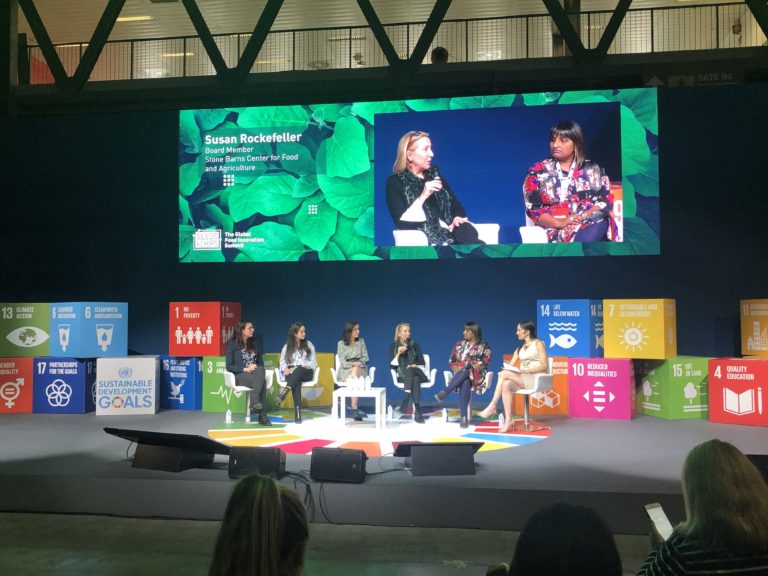

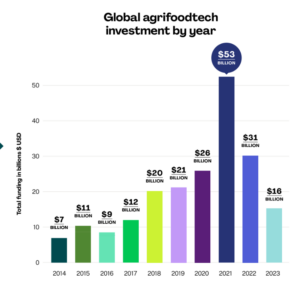

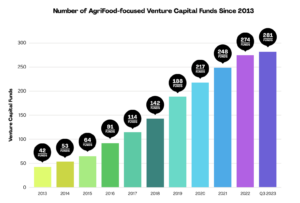

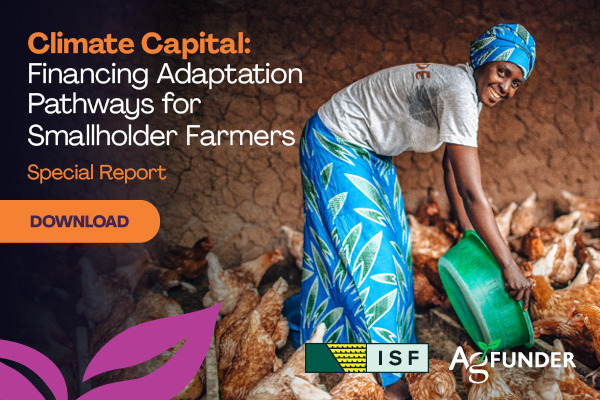
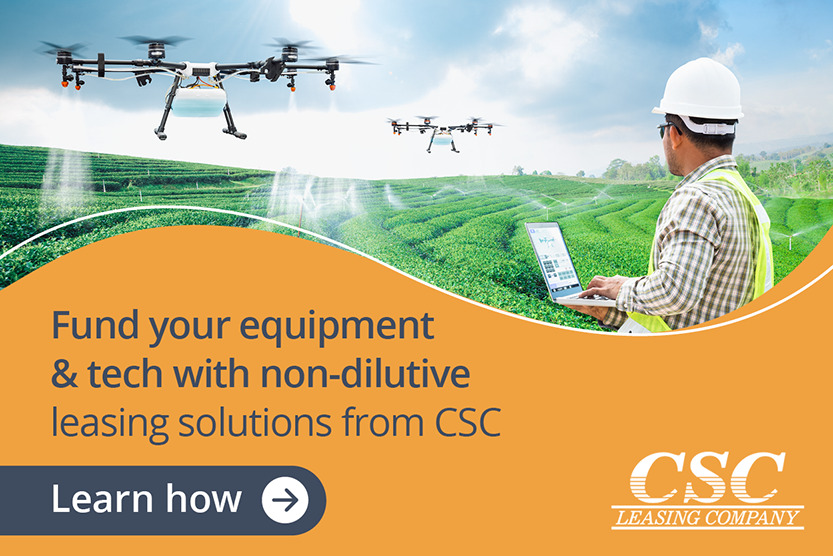


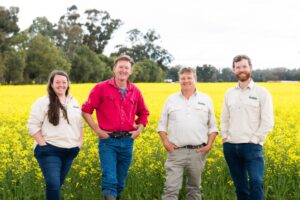


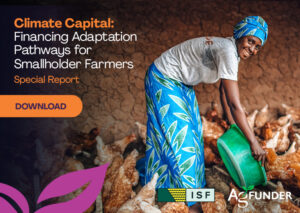

Sponsored
International Fresh Produce Association launches year 3 of its produce accelerator